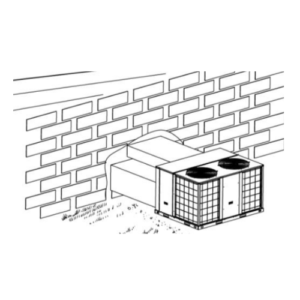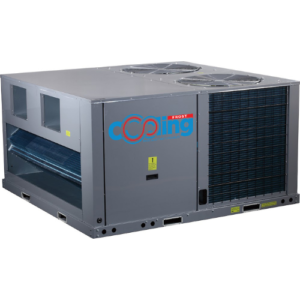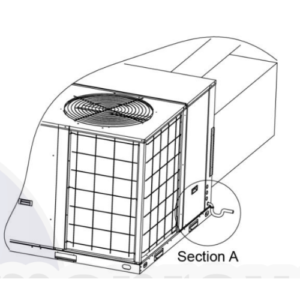Package Unit HVAC in UAE & KSA
The largest in-stock inventory – Over 90 supermarket cabinets ready for same-day delivery
Full supermarket solutions from one supplier – No need to source from multiple vendors
Exclusive 2-year full warranty when you buy directly from us – Covers both parts and complete unit replacements
Premium European-quality refrigeration – Used by leading supermarkets like Carrefour & Lulu
Fast installation – Our closed-tag units come pre-assembled with electrical panels & piping, reducing installation time and cost
HVAC Systems
HVAC Systems
HVAC Systems
HVAC Systems
HVAC Systems
HVAC Systems
Frequently Asked Questions
What does HVAC stand for and how does it work?
HVAC stands for Heating, Ventilation, and Air Conditioning, and it refers to the systems used to regulate indoor climate and air quality in residential, commercial, and industrial spaces. These systems work by heating or cooling air and circulating it throughout a building using a network of ducts, fans, and vents.
The heating component typically uses a furnace or heat pump, the ventilation ensures fresh air circulation and removal of stale air, and the air conditioning cools and dehumidifies indoor air. HVAC systems maintain comfortable temperatures, improve air quality, and help control humidity, all of which are essential for a safe and pleasant indoor environment.
What are the benefits of commercial HVAC systems?
How do I choose the right HVAC system for my business?
Choosing the right HVAC system for your business involves evaluating several important factors to ensure comfort, efficiency, and long-term value. Start by assessing the size and layout of your space, as well as your specific heating, cooling, and ventilation needs based on occupancy and equipment. Consider the local climate and how much control you need over temperature zones. Energy efficiency ratings and system scalability should also be top priorities to support cost savings and future growth. Additionally, think about noise levels, maintenance requirements, and integration with smart controls.
If you need to choose and install an HVAC system in the UAE or KSA, contact Frost Cooling. With over 25 years of experience and a well-stocked inventory of high-quality units, we are well-equipped to recommend and install the ideal HVAC system for your business, keeping in mind your unique needs and budget.
What is the difference between split and central HVAC systems?
The main difference between split and central HVAC systems lies in their structure and how they distribute air. A split system consists of separate indoor and outdoor units, typically used for cooling or heating individual zones or rooms. These systems are ideal for smaller commercial spaces or businesses that want targeted climate control in specific areas.
In contrast, a central HVAC system uses a single unit to heat or cool air and then distributes it throughout the building via a network of ducts. Central systems are better suited for larger buildings that require uniform temperature control across multiple zones. Each option has its advantages depending on the size of your business, layout, and climate control needs.
How often should HVAC systems be serviced?
HVAC systems should be professionally serviced at least twice a year, typically once before the cooling season and once before the heating season, to ensure they operate efficiently and reliably. These routine maintenance visits help identify and address potential issues early, such as worn components, dirty filters, or refrigerant imbalances, which can affect performance and lead to higher energy costs.
In high-use commercial environments like supermarkets or retail stores, quarterly inspections may be recommended to maintain optimal air quality and system efficiency. Regular servicing not only extends the life of your HVAC system but also helps prevent unexpected breakdowns and costly repairs.
At Frost Cooling, we deliver reliable post-installation services, including free maintenance checks within the 2-year warranty period. Contact us to explore our latest range of HVAC systems and learn more about our services.
What are the signs that my HVAC system needs repair?
Signs that your HVAC system needs repair include unusual noises such as banging, rattling, or hissing, which can indicate loose or damaged components. A noticeable drop in heating or cooling performance, uneven temperatures, or weak airflow may suggest issues with the compressor, ductwork, or thermostat. Energy bills that are higher than normal without a clear explanation can also point to an inefficient or malfunctioning system. Other warning signs include frequent cycling on and off, unpleasant odors coming from the vents, or excessive humidity indoors. If you notice any of these symptoms, it is important to contact a qualified technician promptly to prevent further damage and restore proper system function.
How can I reduce energy consumption with my HVAC system?
You can reduce energy consumption with your HVAC system by implementing a few smart practices and upgrades. Start by scheduling regular maintenance to keep the system clean and running efficiently. Replace air filters on time and check for leaks or worn components. Use programmable thermostats to adjust temperatures based on occupancy and business hours to avoid unnecessary heating or cooling when the building is empty. Seal and insulate ductwork to prevent energy loss and ensure your space is well-insulated to reduce the workload on the system. Upgrade to high-efficiency equipment and use zoning systems to control different areas individually. These practices can lead to significant energy savings over time.
At Frost Cooling, our advanced HVAC systems are equipped with energy-saving features that promote sustainable operations, even in hot and humid climates like the UAE and KSA. Contact us to upgrade your HVAC system or install one for your new business operations.
What is HVAC zoning and how does it work?
HVAC zoning is a system design that divides a building into separate areas, or “zones,” each with its own temperature control. It works by using a network of dampers within the ductwork and multiple thermostats that regulate airflow to different parts of the building. This allows you to heat or cool specific zones independently based on occupancy or usage, rather than conditioning the entire space uniformly. Zoning improves comfort by addressing hot or cold spots and reduces energy consumption by directing climate control only where it is needed. It is especially beneficial for businesses with varied space usage or areas that receive different amounts of sunlight and foot traffic.
At Frost Cooling, we work closely with our customers to understand their specific needs and map zones to optimize comfort and energy efficiency. We also provide reliable post-installation support to address any concerns that may arise. Contact us for a quote today.
What are the most suitable HVAC systems for UAE commercial properties?
- VRF (Variable Refrigerant Flow) Systems: These systems offer flexibility, energy efficiency, and precise control, making them ideal for large commercial properties. VRF systems can adjust the refrigerant flow based on cooling or heating demand, providing customized comfort for different zones.
- Chilled Water Systems: Common in large commercial buildings and malls, chilled water systems use water to carry cooling from a central chiller to air handling units. These systems are efficient for large-scale applications and can handle the high cooling demands of the UAE’s climate.
- Packaged Rooftop Units: These are self-contained systems often used in commercial properties with limited space. They are designed for durability and can efficiently handle extreme heat.
- Split and Ducted Split Systems: For smaller commercial spaces, split and ducted systems are efficient, easy to install, and maintain. They are suitable for areas that need zoned temperature control and are widely used in restaurants, offices, and retail outlets.
- Energy Recovery Ventilation (ERV) Systems: These systems are ideal for improving indoor air quality while reducing energy costs. They work by exchanging heat and humidity between incoming and outgoing air, making them well-suited to the UAE’s hot and humid environment.
How do HVAC systems in the UAE handle extreme summer temperatures?
- High-Capacity Cooling Systems: Commercial HVAC systems in the UAE are typically equipped with larger capacity compressors, chillers, and cooling units to handle the intense heat and maintain indoor comfort.
- Energy Efficiency: Given the high demand for cooling, many systems are designed with energy-efficient technologies such as variable-speed compressors, energy recovery ventilation (ERV) systems, and smart thermostats that reduce energy consumption during peak hours.
- Enhanced Insulation and Sealing: Proper insulation in both the building structure and ductwork helps reduce heat gain from the outside, minimizing the workload on the HVAC system. Sealing windows and doors prevents cool air from escaping and hot air from entering, improving overall efficiency.
- UV and Solar Protection: Many buildings in the UAE incorporate UV-resistant glass, shading, and reflective coatings to reduce solar heat gain, which helps lower the cooling load on HVAC systems.
- Regular Maintenance and Advanced Filters: Due to the high levels of dust and sand in the air, HVAC systems in the UAE are equipped with advanced air filters and require more frequent maintenance to ensure they are running at peak efficiency and avoiding damage from dust buildup.
- Smart Zoning and Controls: Zoning systems are commonly used to control different areas of a building independently. This ensures that cooling is provided only where and when needed, which is especially helpful during the summer when energy conservation is critical.



